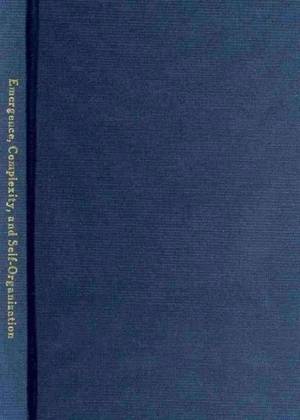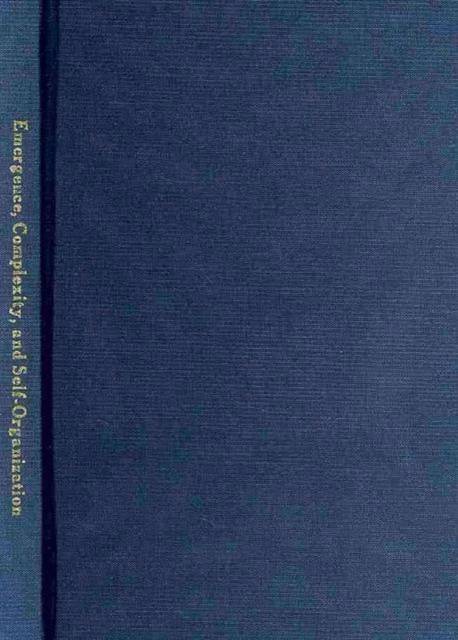
- Afhalen na 1 uur in een winkel met voorraad
- Gratis thuislevering in België vanaf € 30
- Ruim aanbod met 7 miljoen producten
- Afhalen na 1 uur in een winkel met voorraad
- Gratis thuislevering in België vanaf € 30
- Ruim aanbod met 7 miljoen producten
Zoeken
Emergence, Complexity, and Self-Organization
Precursors and Prototypes
€ 85,45
+ 170 punten
Omschrijving
Emergence, Complexity, and Self-Organization have become vital focuses of interest not only in the fields of science and philosophy but also in the wider worlds of business and politics. This book presents a series of essays by thinkers who anticipated the significance of those issues and laid the foundations for their current importance. Readers of this book will encounter the important and varied figures of Immanuel Kant, John Stuart Mill, Charles Saunders Peirce, Henry Poincaré, Henri Bergson, Alfred North Whitehead, and the British "Emergentists" Samuel Alexander, C. Lloyd Morgan, and C. D. Broad. They will also find essays by the South African thinker and statesman Jan Smuts, the American philosopher Arthur Lovejoy, the eminent physicist Erwin Schrödinger, two more recent thinkers on emergence, P. E. Meehl and Wilfred Sellars, and Ludwig von Bertalanffy, one of the founders of General Systems Theory. In their detailed and comprehensive introduction to the collection, editors Alicia Juarrero and Carl A. Rubino set the essays in contexts stretching from Heraclitus, Parmenides, Plato, Aristotle, and Hegel to some of the religious, scientific, and philosophical challenges we face today.
Specificaties
Betrokkenen
- Uitgeverij:
Inhoud
- Aantal bladzijden:
- 256
- Taal:
- Engels
- Reeks:
Eigenschappen
- Productcode (EAN):
- 9780981703213
- Verschijningsdatum:
- 1/05/2008
- Uitvoering:
- Hardcover
- Formaat:
- Genaaid
- Afmetingen:
- 156 mm x 234 mm
- Gewicht:
- 503 g

Alleen bij Standaard Boekhandel
+ 170 punten op je klantenkaart van Standaard Boekhandel
Beoordelingen
We publiceren alleen reviews die voldoen aan de voorwaarden voor reviews. Bekijk onze voorwaarden voor reviews.







